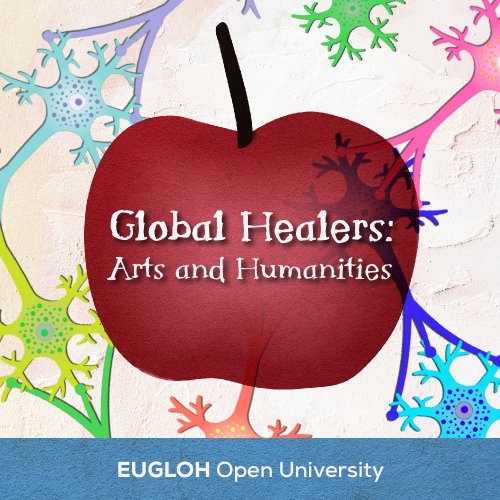
WHAT IS EUGLOH OPEN UNIVERSITY?
This course is the English version of a popular general knowledge course of University of Szeged (USZ). The Open University (Szabadegyetem in Hungarian) has been running at USZ with great success for 16 years now as an optional course for all of the students of the University.
Do the humanities have a healing power? Is there a cure in philosophy or ethics? Can we combine cultural studies with the various disciplines of medicine to promote health?

All speakers in the series are scholars and researchers with international reputation, including lecturers coming from EUGLOH Universities. Lectures will be presented online. Grading will be based on quizzes following each week’s topic OR an online test at the end of the semester (students may choose). Recorded versions of lectures will be available for viewing after the event.
LECTURERS AND TOPICS INCLUDE THE FOLLOWING:
- 10-FEB Holly Case, Brown University: "Robot Revolutions: Why Do Robots Always Rise Up?"
- 17-FEB Anna Kérchy, University of Szeged: "The cultural history of freak shows: navigating between mythical, biomedical, and social constructionist understandings of disability -- towards a healthier society"
- 24-FEB Kent Cartwright, University of Maryland, College Park: “Laughter, Surprise, and Wonder: The Healthfulness of Shakespearean Comedy.”
- 3- MAR Fatima Vieira, University of Porto: "Alimentopia: Utopian Foodways"
- 10-MAR, Lilla Farmasi, University of Szeged: "Cognitive science and literature: Literary representations of the subjective experience of being ill"
- 17- MAR Paola Spinozzi, University of Ferrara: “The Ecological Humanities and Ecocriticism for Sustainable Wellbeing”
- 24-MAR Beata Glinka, University of Warsaw:" Organisations in a social context: how volunteering influences employees"
- 31-MAR Shaul Bassi, University of Venice: “The Medusa and the Mermaid: Thinking and Feeling with the Environmental Humanities”
- 7-APR Andrea Némedi, software development manager, coach, soft skill trainer: "The Artistic and Literary Language of Albert-Laszlo Barabasi’s Network Science"
- 21-APR Helena Sandberg, Lund University: "Media and health - a happy marriage?"
- 28-APR István Szendi, University of Szeged: "The Narrative Facilitation of Recovery"
- 5-MAY Patrick Gray, University of Durham: "Dramatic Representations of Post-Traumatic Stress Disorder (PTSD): Sophocles, Seneca, Shakespeare, and the Question of Anachronism"
- 12-MAY Dávid Marno, University of California, Berkeley: TBA
WHO CAN PARTICIPATE?
Students and lecturers from all faculties of member universities of the EUGLOH Alliance (University of Szeged, Paris-Saclay University, Lund University, Ludwig-Maximilian University of München, University of Porto). Presentations will address questions that students with any background can relate to if they have a basic curiosity towards arts and humanities subjects.
WHAT PEDAGOGICAL METHODS/TOOLS ARE APPLIED?
Lectures by online video streaming, interactive communication tools.
HOW ATTENDENCE IS AWARDED?
EUGLOH Certificate and 3 ECTS will be provided for the students attending the Open University. Students will be evaluated at the end of the course by online test OR based on the quizzes following each lecture (students may choose).
-
Registration
Registration: Please register here.
Contact person: In case of questions please contact eugloh@szte.hu.
